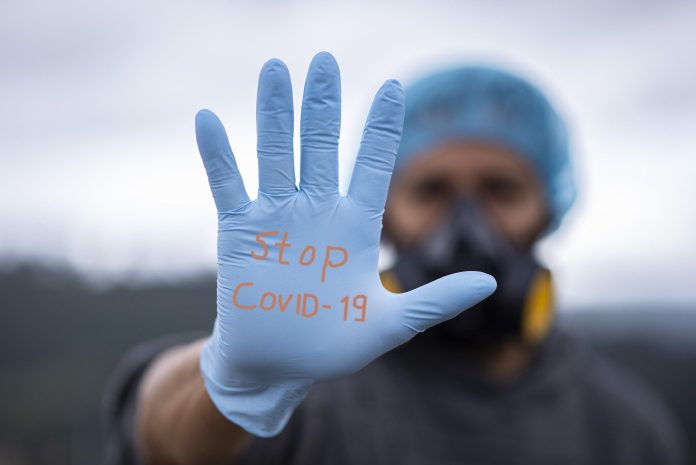The Connection Between rising Alzheimer’s Deaths and COVID-19.For people with Alzheimer’s and dementia, the pandemic has been especially disastrous. At this point in the pandemic, we understand the elderly population is at the highest risk for the most severe COVID-19 complications, but this does not fully explain the rise in Alzheimer’s deaths for 2020. Over the summer, The Wall Street Journal reported that there was a surge of Alzheimer’s deaths coinciding with the pandemic. Alzheimer’s and related dementia deaths are up nearly 20% for the year over last year.
Of course, since many people who suffer from Alzheimer’s are elderly, some of the rising death toll can be attributed to COVID-19 infections, but there is more to the story. There are a few possible explanations for why the Alzheimer’s death toll has risen so sharply over the past year.
- People with Alzheimer’s face a higher chance of catching COVID-19
The first, andperhaps the clearest reason, that COVID-19 has resulted in more dementia related deaths is because people suffering from dementia are in higher risk settings and more likely to catch COVID-19. Generally, people with dementia live with caregivers or at long term care facilities, which have been a hotspot for the virus throughout the pandemic. If dementia or Alzheimer’s sufferers are exposed, they are at a higher risk for death due to their overall higher age. Recently, the New York Times wrote that 37% of coronavirus deaths in the U.S. were in long term care facilities. According to the CDC, more than 40 percent of long term care facility residents are living with some form of dementia. Since there are a disproportionate amount of people suffering from dementia in long term care facilities, it sadly makes sense that they are dying in higher numbers. People with dementia are in an extremely exposed, high-risk group.
2.) Less Access to Medical Care in 2020
For those who have dementia or Alzheimer’s, but have never contracted COVID-19, they are still dying at a higher rate than usual. This could be because most of our attention and much of our healthcare system has been focused on the pandemic. A surge in non-COVID deaths has also been recorded in people with high blood pressure, heart disease, diabetes, and many other health issues throughout 2020. To make matters worse, marginalized communities suffer from illnesses like diabetes at a higher rate and likewise, are suffering from COVID-19 at a higher rate. Because our resources must be focused on the pandemic to stop it as soon as possible, medical care is generally less accessible, no matter what type of care is being sought.
Dr. Lynn Goldman, dean of the Milken Institute School of Public Health at George Washington University, has said that the pandemic will inevitably result in more deaths than those that are simply tied to the infection’s symptoms. Similar to other natural disasters, many more deaths are attributed to the aftereffects than to the actual even itself. Dr. Lynn Goldman was a part of 2018 study that found there were thousands of deaths caused by Puerto Rico’s Hurricane Maria that weren’t exactly due to the storm. The deaths were due to the inability to seek preventative care due to the infrastructure failings resulting from the hurricane. The pandemic is not as singular an event as a hurricane, so the fallout is even worse. We are now stretching into our eighth month of the pandemic and people with all health conditions are worse off because of it.
3.) Disruption in Routines
For people with dementia or Alzheimer’s, sticking to a routine is essential to their wellbeing. This is not only true for the patient, but also for the caregiver and the type of care being given. Because the pandemic stopped family visits at facilities, cut staff numbers, and froze respite care and adult day care, both patient and caregivers are feeling the strain mentally. If a caregiver is stretched too thin, there is a higher risk for accident or oversight.
If someone has a fall that could have been prevented with more supervision, or has a lack of fluids for a day, it could send the Alzheimer’s patient spiraling and even result in physical harm. Heightened anxiety, loneliness, and depression can lead to a quicker mental decline. Since Alzheimer’s is progressive, any disruption of routine can cause a speedier decline than would have otherwise occurred without the pandemic. Even something as minute as a sleeping schedule change can have dire consequences for a dementia patient.
People with Alzheimer’s and related dementias often are not aware we are in a pandemic, so theydo not understand the reasons that visits have stopped or why their caregiver has been changed. According to an interview in The Wall Street Journal, there are instances of people declining and dying due to the negative mental state of feeling abandoned.
With the new, Winter-spike in cases, no one is sure of what will happen, but over the summer, some communities were experimenting with outdoor visits. It seems that because the cases are rising again that we will tragically see another rise in Alzheimer’s deaths in the near future.
4.) What does the future hold?
Beyond all the physical side effects of the novel Coronavirus, researchers have also discovered that the disease sometimes has neurological effects. Since we do not have long term research, we do not yet know how COVID-19 alters the brains of people with Alzheimer’s. Researchers have found that it might be possible that the Alzheimer’s biomarker gene could heighten a person’s risk to contracting COVID-19 and that for those that have already recovered from COVID-19, they may be at a higher risk for Alzheimer’s in the future. Because the virus’s effect on the brain is still unclear, we may be seeing a rise in Alzheimer’s and Alzheimer’s deaths for years.
Max Gottlieb works with Senior Planning. Senior Planning offers free care-finding resources to the elderly and those with dementia or Alzheimer’s.










